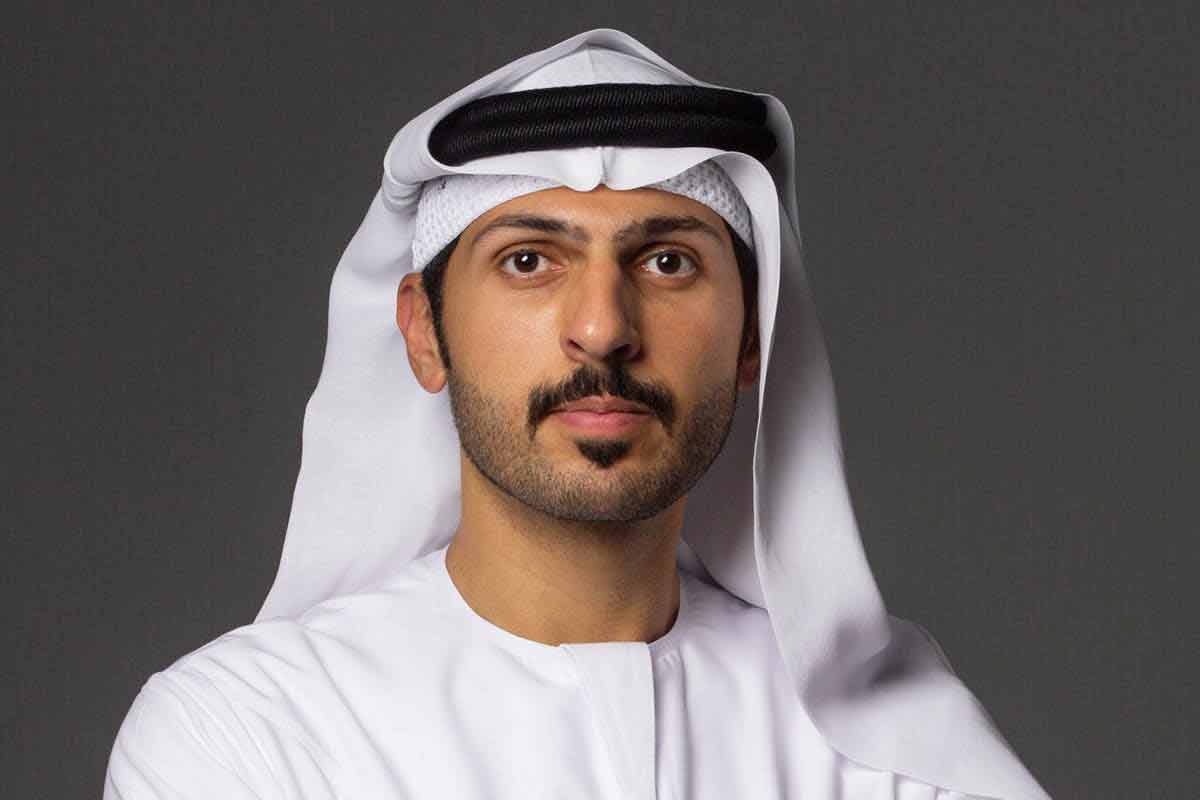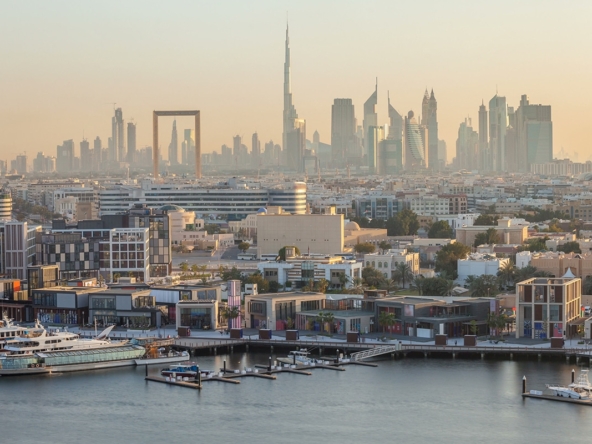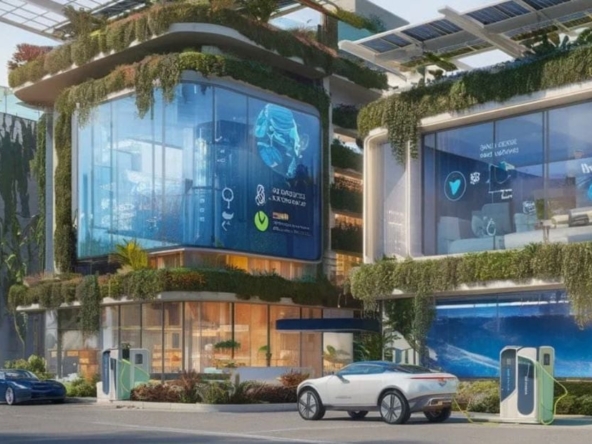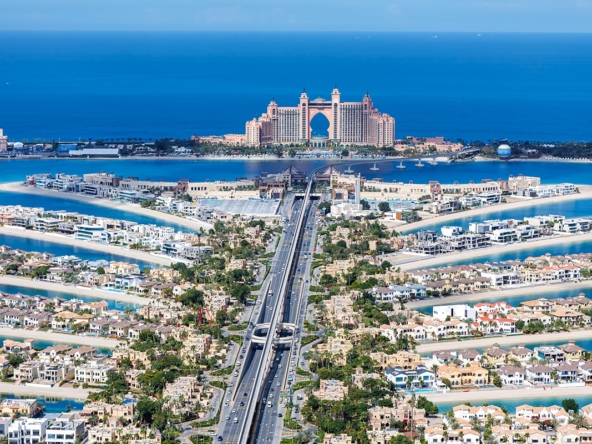BinGhatti believes factors like Dubai’s growing population, tenant demand, and yields still outpacing other major international financial centres will insulate the luxury market even in a potential downturn
Driving around Dubai, there are few names as prominent on the city’s skyline as Binghatti. In many ways, the firm’s founder, Muhammad BinGhatti, has been a pioneer of the emirate’s bustling luxury real estate market, as the mind behind some of the biggest emerging trends in property.
In particular, Binghatti’s role in bringing the trend of branded real estate cannot be understated. “We were trailblazers, in my opinion, when it came to [branded residences],” he quips.
The emergence of branded residences also stems from the developer’s efforts to cater to international tastes. BinGhatti has secured partnerships with automotive marques like Bugatti and Mercedes-Benz, along with storied jewellery and wristwatch firm Jacob & Co. Through these branded properties, BinGhatti has sought to leverage decades of reputation within these industries to resonate with a global audience.
Working with brands like Bugatti to develop the world’s first Bugatti Residences was both challenging and rewarding, according to the developer.
“You’re doing something that hasn’t been done before. It’s the first and only Bugatti residences worldwide. How do we make this Bugatti? What is Bugatti about? We had to sit and have workshops on a weekly basis to understand what Bugatti is about as a brand. Bugatti is a very bespoke brand, so we literally had to design 182 different layouts for different units, and not a single unit is the same as any other. They’re all unique pieces,” he explains.
“It’s not your usual approach towards real estate, and that’s what makes it exciting for us.”
Value proposition remains compelling
The rise of Dubai’s property market mirrors the global rise of the emirate, with the sector playing a crucial role in the city’s economic landscape. In recent years, the market has been booming – BinGhatti describes it as ‘boiling hot’ – with prices rising rapidly. When asked about his outlook for the market, BinGhatti remained bullish on its long-term growth prospects.
“I think the market’s in a solid position. I think we’re going to see steady growth moving forward … The reason why I think the growth will continue is the population continues to grow, so there’s demand chasing supply, and we have a lot of legislative policies that are enabling this demand to continue,” he explains.
Does he expect any price decreases on the horizon? “I don’t foresee any dips, I see an increase, but perhaps the rate of increase will be at a steadier rate, rather than a rapid rate, which, in my opinion, is much more healthy. For us, we’d rather be on an upward trajectory than rapidly going up and then experiencing a V-shape fall.”
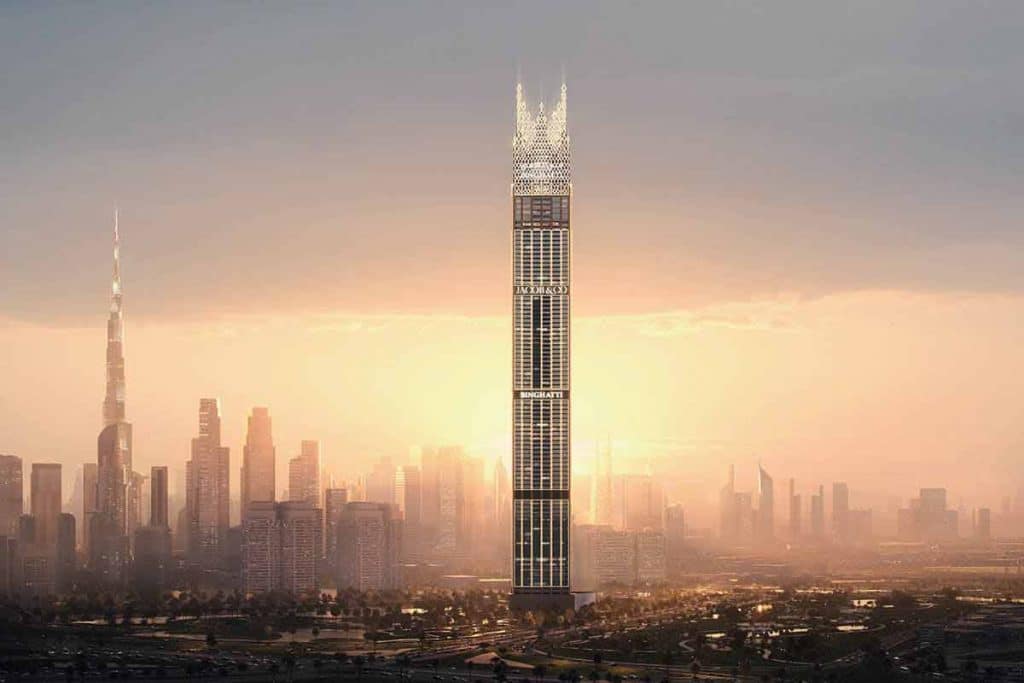
Changing demographics
One factor fuelling demand is the evolution of Dubai’s buyer demographic. This year, Turkish, Egyptian, and Indian buyers have stood out as important players, according to BinGhatti, which has had an impact on the market.
“Developers have been in much more competition to provide a much more appealing product on a global scale,” he explains, adding that the influx of global buyers has spurred developers to raise product quality to compete. “You really have to present something that’s appealing to the global buyer,” BinGhatti notes. His company has responded by enhancing finishes, amenities, and designs inspired by five-star resorts worldwide.
“We’ve been investing a lot in terms of enhancing the quality of our finishes, the quality of our amenities, what sort of amenities we’re putting into these projects.”
Despite rising values, Dubai’s real estate remains an affordable investment when benchmarked against global gateway cities. At just $352 per sq ft on average, compared to over $800 per sq ft in London, Dubai offers exceptional value relative to prominent overseas markets, according to BinGhatti.
This affordability, paired with Dubai’s stable economic outlook, its appeal as a regional business hub, and its political stability, contributes to the emirate’s value proposition as a safe haven destination. BinGhatti believes factors like Dubai’s growing population, tenant demand, and yields still outpacing other major international financial centres will insulate the luxury market even in a potential downturn.
“The increases in price have positioned Dubai in its rightful position alongside other international cities… When you compare the level of service you’re getting, I think Dubai is up there for sure – you can experience it the moment you arrive at the airport, you’re clear within minutes. So it’s not just the price per square foot angle, but also the value you’re getting,” BinGhatti says.

For BinGhatti, the future is tech-driven
According to BinGhatti, the future of real estate will be defined by quality, design innovation, and increasing integration of smart technologies. Developers are investing heavily in architectural icons as well as AI-enabled living experiences like voice-controlled smart home systems.
This drive for tech-led differentiation stems from healthy competitive pressures within Dubai’s development industry. As BinGhatti sees it, “competition is a good thing… competition ultimately drives innovation.”
“We are seeing a lot of evolution in terms of the design of assets. There’s a really clear evolution in terms of the architecture, the interior design, the level of firms that are coming in to design these projects,” he says.
“We’re investing a lot in technology… I think tech and AI are definitely part of what we›re looking at in terms of the future of real estate. I think this sort of innovation is happening in a city like Dubai because it’s very much driven by the real estate market. It’s a huge part of the economy of Dubai and will drive more innovation in terms of AI, in terms of smart technologies, and quality overall.”
The emirate’s economic driver
The historic impact of real estate on the economic growth of Dubai cannot be understated, and this is a dynamic that BinGhatti doesn’t see changing anytime soon. “I think the market has a huge role to play… I think it’s one of the largest, if not the largest, portions of the Dubai economy, and rightfully so,” he said.
“A lot of people are coming to park their money in a safe haven, and the real estate market does exactly that for them,” BinGhatti explains, pointing to Egyptian and Turkish buyers as examples. A lot of buyers coming in from Egypt and Turkey, they simply want to protect their wealth from currency volatility, so for them just investing in Dubai and keeping their money safe in an asset in Dubai already yields them a certain return when they’re comparing it with the opportunity cost of currency fluctuations,” he says.
In addition to an increased global audience, BinGhatti also points to a growing appetite among residents for real estate as a stable underpinning of the sector. This increased purchasing from residents has been driven by several factors, according to the developer: “One is that people feel safe in Dubai right now, they feel secure with Golden Visa programmes… [Buyers are] bringing their families, they’re choosing Dubai to settle. They know that they’re here for a very long time.
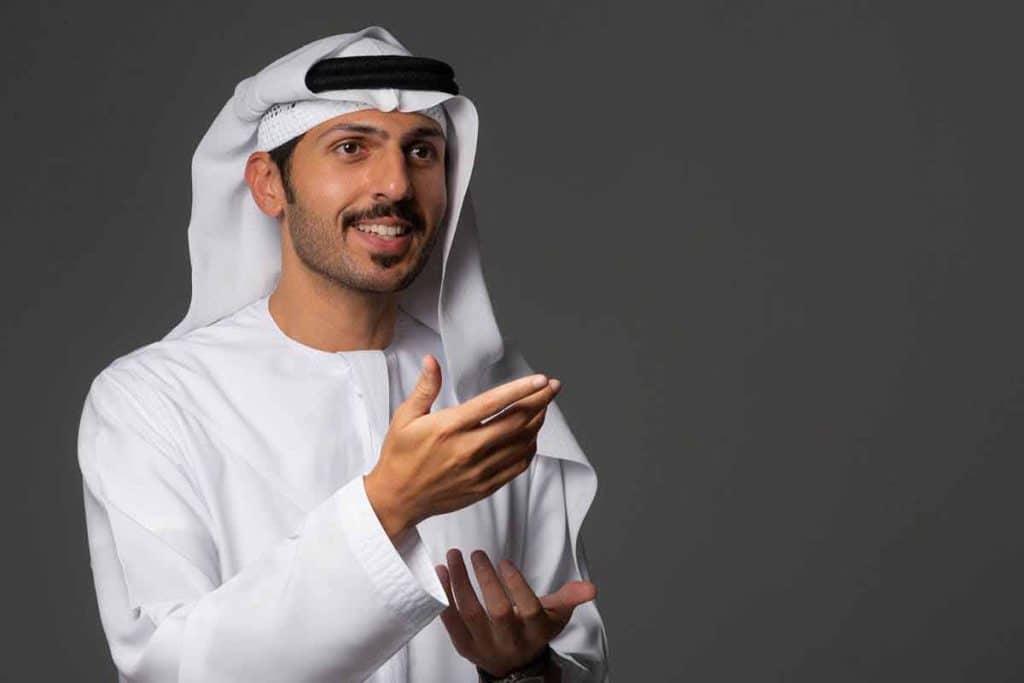
“The market has been performing very well, and yields have gone up, and because of that [residents] are noticing day by day that it makes more sense to actually put money towards a down payment and then pay instalments and own a home in Dubai.”
BinGhatti’s belief in the strength of Dubai’s real estate market is personal. When asked if he would tell a family member to buy, his response is simple, but with one important caveat: “Yes, I would tell them that now’s the time to buy, but I would tell them to make sure they’re buying the right project, in the right location, from the right developer, and at the right price.
“Now’s the time to buy because it’s the most I’ve seen in terms of population growth in Dubai, more than ever. I think all of these people have to either rent or buy properties. There’s still room for growth.”
Courtesy of Arabian Business

